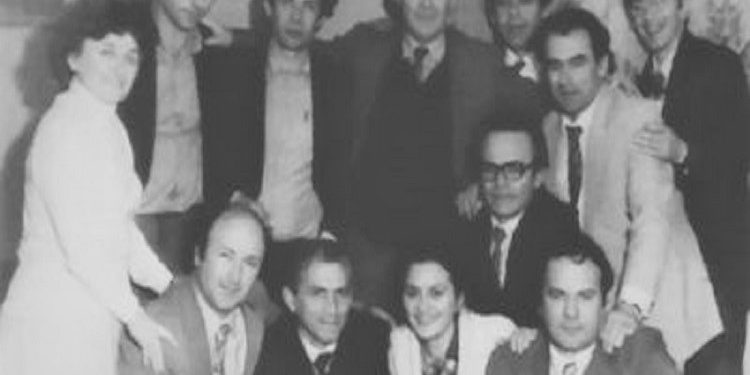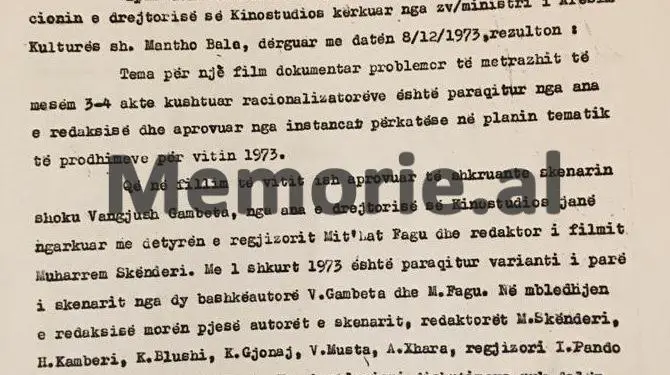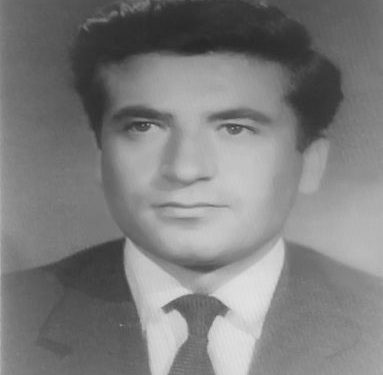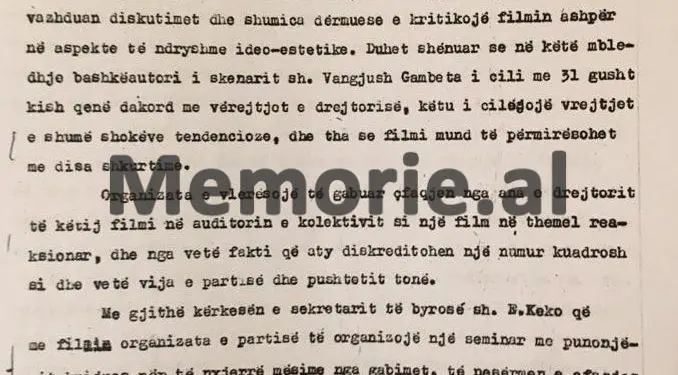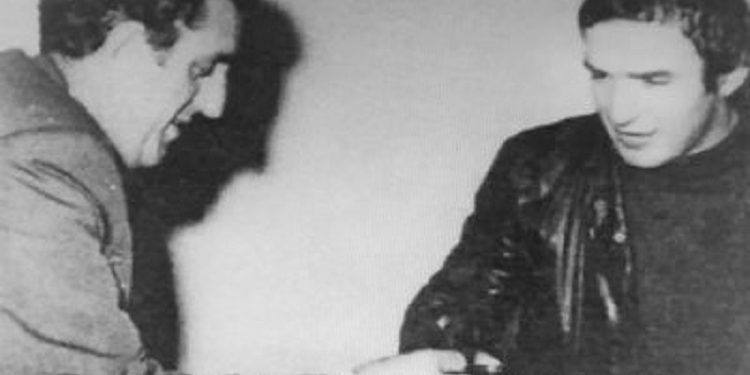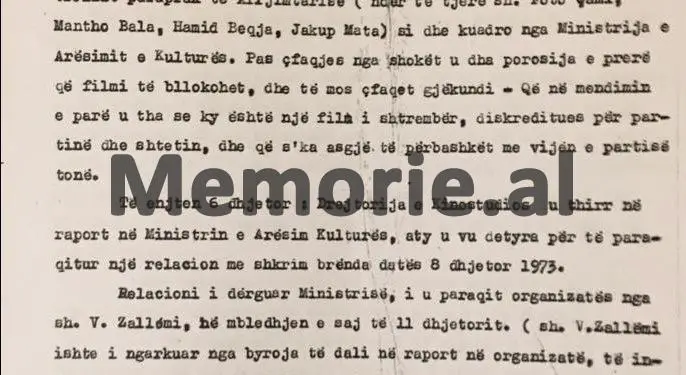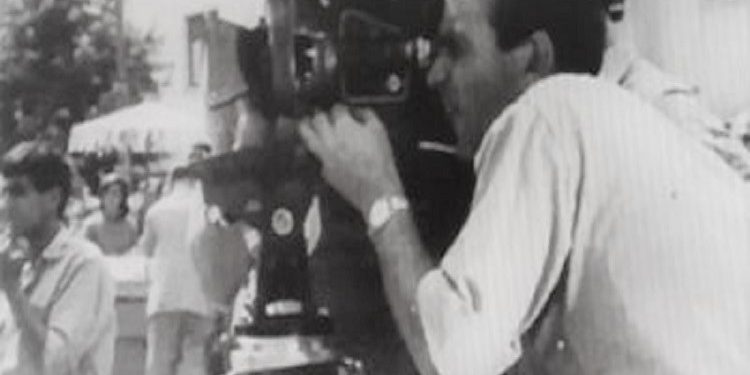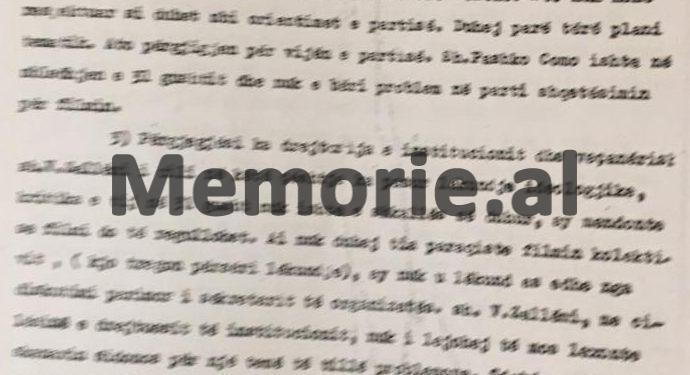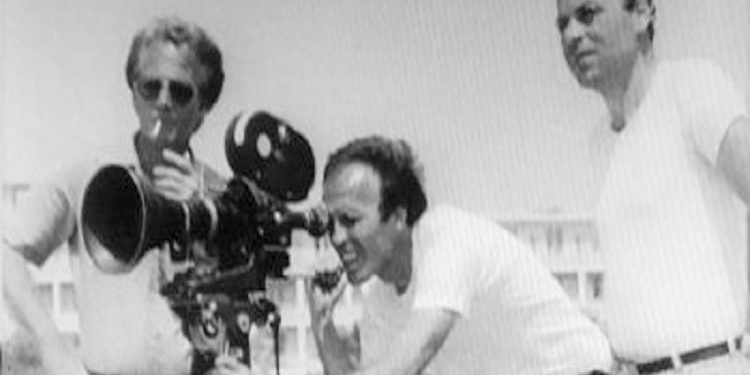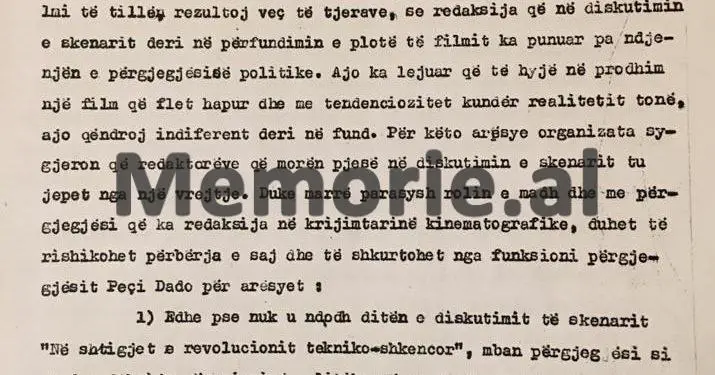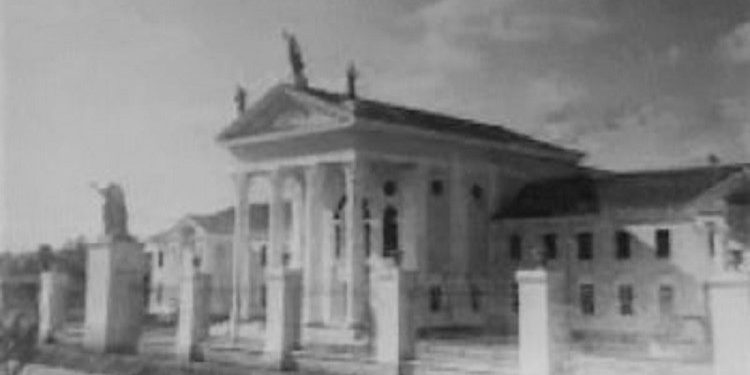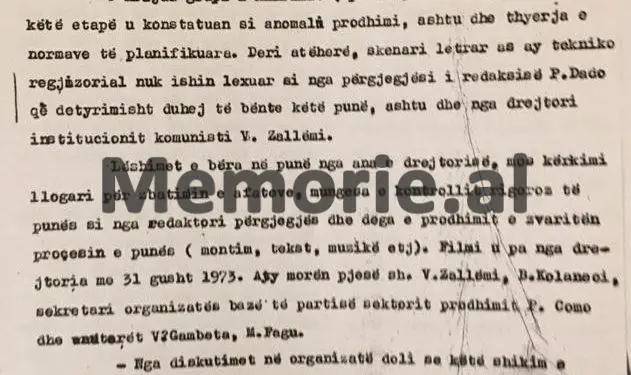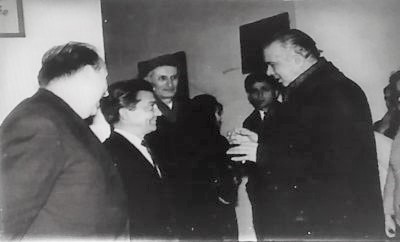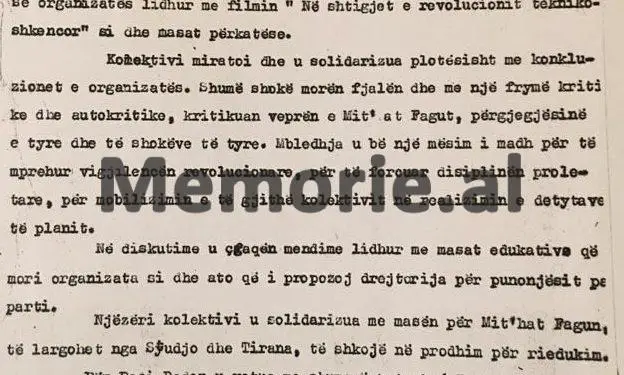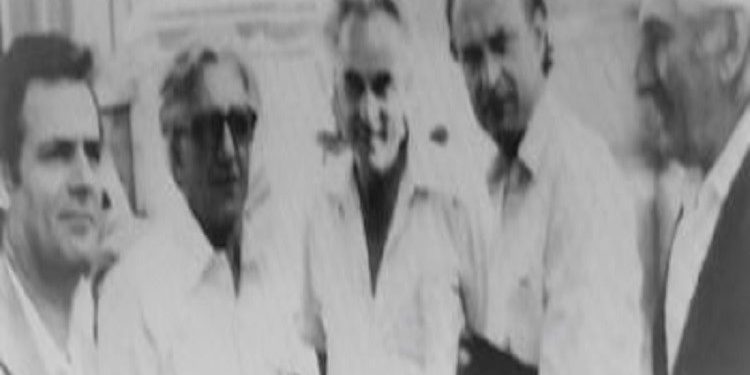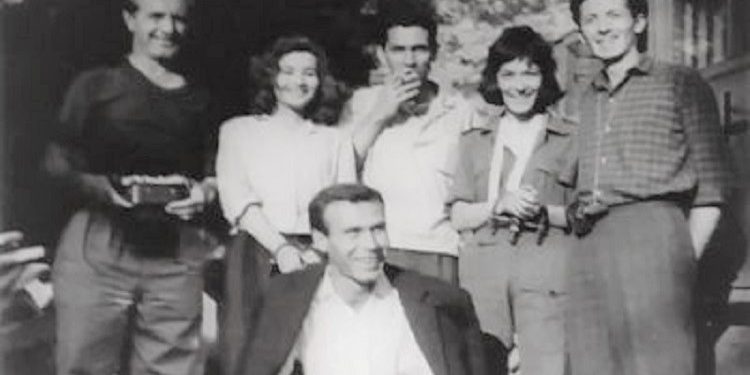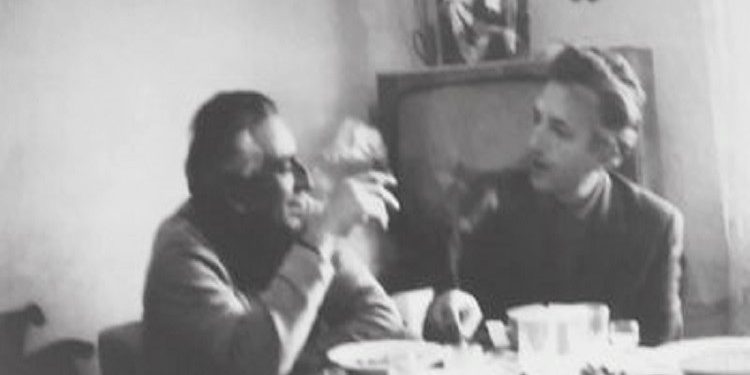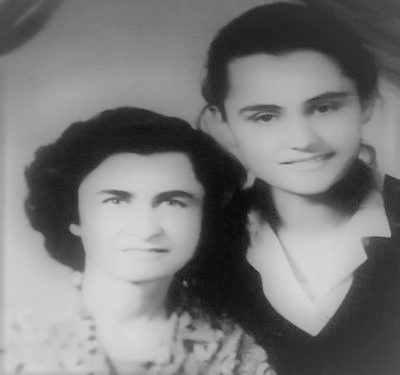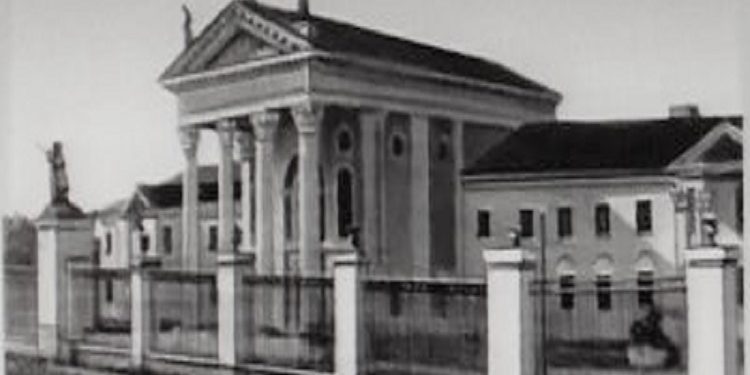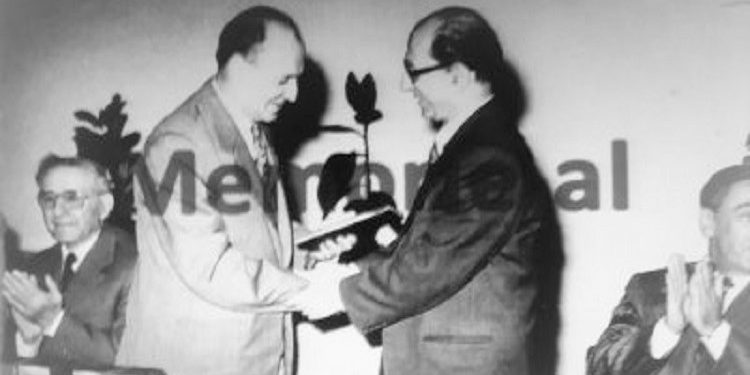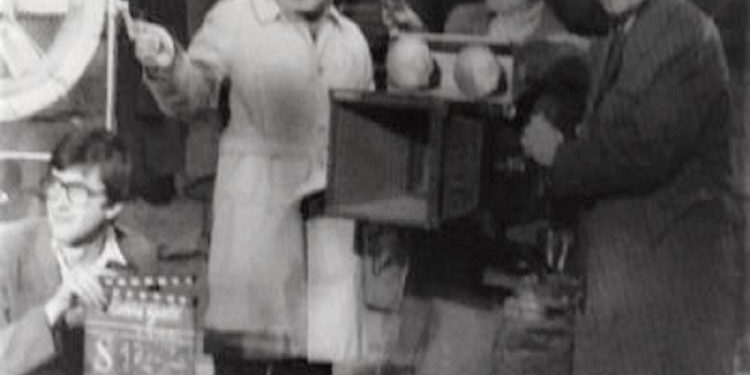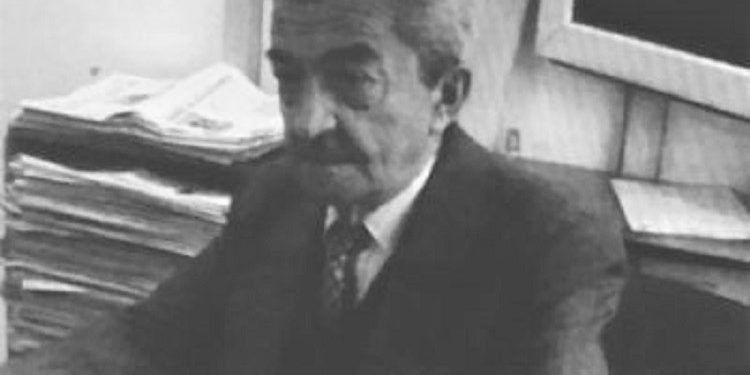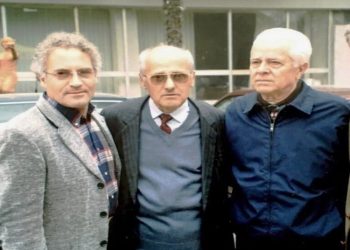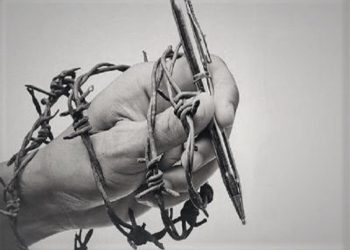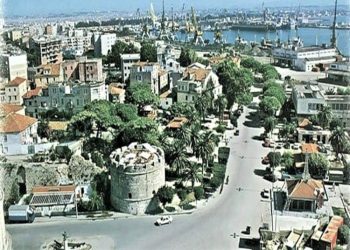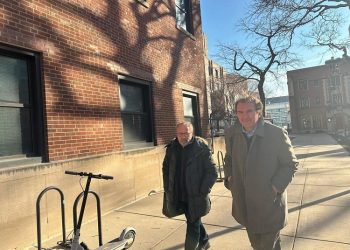Dashnor Kaloçi
Memorie.al publishes some archival documents extracted from a voluminous file of the Central State Archive which belong to the fund of the former Central Committee of the ALP, where it is a report-information made by the basic organization of the party of Kinostudios “Shqipëria e Re” on December 18, 1973, which is sent to the Committee of the Party of Region No. 1 in Tirana. The document in question is an in-depth analysis of the documentary “On the paths of the technical-scientific revolution”, written by Vangjush Gambeta and directed by Mit’hat Fagu made in August of that year, which caused many problems and shocked the senior leadership of the ALP, provoking numerous meetings that lasted several months in a row, where they participated as delegates: Foto Çami, Dashnor Mamaqi, Mantho Bala, Hamit Beqja, Jakup Mato, etc. Why was the film banned considering it “fundamentally reactionary and hostile that discredits the cadres of the party and the line of power”, as well as the punitive measures that were given to the main directors of Kinostudio “Shqipëria e Re”, such as: Vangjush Zallëmi, Piro Milkani, Endri Keko, Todi Bozo, Asim Raxhimi, Bujar Kolaneci, Teodor Siliqi, Pashko Çomo and filmmakers: Mit’hat Fagu, Vangjush Gambeta, Ilo Pando, Peçi Dado, Muharrem Skënderi, Lavdi Fortuzi, Kiço Blushi, Kujtim Gjonaj, Hall Kamberi Must , Rudolf Radovani, Angjelina Xhara etc.
While during the first half of 1973 in all cultural and artistic institutions of the capital such as: National Theater, Albanian Radio-Television, Albanian Writers and Artists Association, Opera and Ballet Theater, State Ensemble of Folk Songs and Dances, Kinostudio “Shqipëria e re”, the Professional Variety Theater of Tirana, the Publishing House “Naim Frashëri”, etc., still continued the long meetings of the basic organizations of the party and professional committees with analysis and discussions “in the spirit of the speech of Comrade Enver Hoxha” held with the apparatus of the Presidium of the People’s Assembly on March 15 and 16 of that year, where the main theme was: “The fight against foreign and liberal performances in art, culture and literature and their impact on the life of the country”, on 31 August, which marked the official end of the summer holidays, word spread that something unusual had happened at the Kinostudio “Shqipëria e Re”. In that extremely irritated atmosphere for all writers and artists, where the legendary president of the League of Writers and Artists, Dhimitër Shuteriqi, had just been fired (being considered a close collaborator of Fadil Paçrami and Todi Lubonja, who had been personally attacked by Enver Hoxha) and was anxiously awaited for “other beheadings”, paradoxically, a documentary film that had finished shooting there in May of that year and that had been shown for the staff of Kinostudio “Shqipëria e Re”, had presented many serious problems. It was even considered as “a reactionary and hostile film that discredits the cadres and the line of the party and the government”. That was the need to raise the alarm not only in the directorate of Kinostudios, but also in the senior leadership of the ALP, provoking meeting after meeting, which would continue for months until the end of that year. As a result, the film would be banned and the main directors of Kinostudio “Shqipëria e Re”, such as: director Vangjush Zallëmi, deputy director Piro Milkani, secretary of the basic organization of the Party, Endri Keko, and other staff Todi Bozo, Asim Raxhimi, Bujar Kolaneci, Teodor Siliqi, Pashko Çomo, would be held accountable, making criticisms and self-criticism in numerous meetings before the delegates from the Central Committee of the ALP, such as: Foto Çami, Dashnor Mamaqi, Mantho Bala, Hamit Beqja , Jakup Mato et al. But it would not end there, as the “storm” would continue against the filmmakers, starting with the two main authors of the film, as director Mit’hat Fagu and screenwriter, Vangjush Gambeta, to end at: Ilo Pando, Peçi Dado, Muharrem Skënderi, Lavdi Fortuzi, Kiço Blushi, Kujtim Gjonaj, Halil Kamaberi, Vlasova Musta, Rudolf Radovani, Angjelina Xhara etc. But what was that documentary film that was seldom causing all those problems up to the top leadership of the ALP covering art and culture and how did that event that lasted for months end? For all these we know the document that we are publishing in this part of the book, which like most of them, is published in full and without any abbreviations.
Report-information of the basic organization of the party of Kinostudios “Shqipëria e re”, addressed to the Party Committee of the Region No. 1 Tirana
BASIC PARTY ORGANIZATION
PRODUCTION SECTOR
CINEMA STUDIO “ALBANIA E RE”
I N F O R M A C I O N
REGIONAL PARTY COMMITTEE NO.1
T I R A N Ë
ON THE FILM “ON THE PATHS OF THE TECHNICAL-SCIENTIFIC REVOLUTION”
Background from the script to the attitude of the basic party organization
According to the official documentation and the data in the report of the Directorate of Kinostudios requested by the Deputy Minister of Education and Culture sh. Mantho Bala, sent on 8/12/1973, results:
The topic for a problematic documentary film of medium length 3-4 acts dedicated to rationalizers has been presented by the editorial board and approved in the relevant instances in the thematic plan of productions for 1973.
Since the beginning of the year, comrade Vangjush Gambeta, formerly approved to write the screenplay, has been appointed by the director of Kinostudios as director Mit’hat Fagu and film editor Muharrem Skënderi. On February 1, 1973, the first version of the script was presented by two co-authors Vangjush Gambeta and Mit’hat Fagu. The editorial meeting was attended by the authors of the script, editors Muharrem Skënderi, Halil Kamberi, Kiço Blushi, Kujtim Gjonaj, Vlasova Musta, Angjelina Xhara, director Ilo Pando and Deputy Director, Piro Milkani. From the conclusions of the discussions did not emerge significant concerns in the content of the script, partial remarks were made: some were to make corrections directly with the technical-directorial scenario and some to make a second more elaborate variant. Today it turned out that no second variant was presented.
-For this stage the organization finds that: Since the formulation of the content of the subject, as well as the discussion of the script is a work without ideo-political responsibility by the editorial staff, especially by the editors responsible for the film, M. Skënderi, the former / director P. Milkani and communist I. Pando, despite the fact that ay is not a member of the editorial board and I assist in the discussion, voluntarily.
The subject and the script go to the other stages of production (in the technical-directorial scenario for 3-4 days approved by the deputy director P. Milkani) and in the shooting from March 1 to May 17, here the communist Teodor Siliqi directs, in that time deputy director of production as well as organically chairman of the production branch.
The film crew was formed (without any communists) and at this stage both the production anomaly and the violation of the planned norms were ascertained. Until then, neither the literary nor the technical-directorial script had been read by the head of the editorial office, Peçi Dado, who had to do this work, as well as by the director of the communist institution, Vangjush Zallëmi.
The dismissals made by the directorate, the lack of accountability for the implementation of skills, the lack of rigorous control of the work by both the editor-in-chief and the production branch, delayed the work process (editing, text, music, etc.). The film was screened by the directorate on August 31, 1973. It was attended by sh. Vangjush Zallëmi, Bujar Kolaneci, the secretary of the party organization of the production sector, Pashko Çomo and the authors Vangjush Gambeta and Mit’hat Fagu.
-From the discussions in the organization it turned out that in this view several factors pushed him; the long delays of the process, some concerns from those interested, meager worries in the corridors, opinions of some of Mit’hat Fagut’s colleagues (they praised the work, but so far they have not told us any names). The above friends watched a movie of 9 acts out of 3-4 planned.
-The directorate of Kinostudios (according to the report sent to Mantho Bala on 8/12/1973, as there is no other document), immediately on 31 August gathered the interested parties, made the relevant findings and remarks, and considered it wrong:
- Introduction to the film, 2) Interviews, 3) editing of the interviewees, 4) the way of giving scientific debates.
In the given reality that the author of the script, Vangjush Gambeta accepts the remarks and asks for them to be made in editing, then to write the text. Director Mit’hat Fagu also agreed to arrange them, but expressed the desire for the film to be discussed in the creative collective, in a state of “justifying the long time and expenses”.
-Even after August 31, despite the concerns that were said in the directorate, both by the director and the secretary of the production organization, there was not even a signal to the party, the editorial office, the production branch, in any bureau, be it the production, whether in the enterprise bureau, none of the bureau members has raised their voice seriously on this issue. On the contrary, comrade Vangjush Zallëmi instructed Peçi Dadon to make the text of the film in the condition that the former film was seen on 31 August.
-Although the authors agreed with the remarks of the directorate, they insisted that it be presented in that state in the collective. The directorate gave the film for discussion in the collective in that condition, reasoning: a) The director had shown the film to many of his colleagues (to whom, how? No name is told to us in the organization ”!), But to have discussions, so for conducting discussions in a regular way, b) discussion, I think it would be worthwhile to draw lessons, for the collective and to understand the shortcomings of the authors, d), in response to the insistence of the authors themselves.
In the party organization it turns out that the screening of the film on November 12, 1973 in the collective was the result of ideological upheavals since the first Vangjush Zallëmi with the screening of the film on August 31. Ay is still not convinced of the serious flaws of the ideological character in the film, ay thought the film could be made visible. This is confirmed by the fact that ay did not make any intervention to orient the team on its serious flaws and weaknesses, and even worse when he listened to the very principled discussion made by the secretary (party organization sh. Endri Keko) on him the ideological flaws of the film, linking them also with the party’s messages for strengthening partisanship in cinematography, in the fight against the influences of imperialist-revisionist ideology. Here sh. Vangjush Zallëmi expressed his surprise why sh. Endri made such a discussion, why the path of our cinematography should be mentioned in this case, why the bitter experience of the revolution of Polish, Soviet cinematography, etc. should be mentioned. This intervention sounded very bad in front of the entire creative team. However in the collective discussions continued and the vast majority criticize the film harshly in various ideo-aesthetic aspects. It should be noted that in this meeting, the co-author of the script sh. Vangjush Gambeta, who on August 31 had agreed with the remarks of the directorate, here described the remarks of the tendentious comrades, and said that the film could be improved with some cuts.
The organization misjudges the performance of the director of this film in the audience auditorium, as a reactionary film, and the very fact that a number of cadres are discredited there, as well as the line of our party and power.
Despite the request of the secretary of the bureau sh. Endri Keko, that in the beginning the party organization organizes a seminar with creative employees to learn from mistakes, the next day of the show by the editorial office and the directorate, written remarks were made to be given to the director, to worked the film as it is done in normal processes, as for a regular film.
THE ATTITUDE OF THE ORGANIZATION UNTIL THE CONCLUSIONS
-Before this situation, when serious concerns about the film appeared in the collective, on Wednesday, November 14, 1973, the bureau of the basic organization of the party (production sector), took measures: The film should be suspended from production, given for screening organization and then for discussion where to derive the causes and responsibilities. The bureau of the institution instructs the directorate to show the film with the interviewees, to verify the ways in which the synchronies were obtained, etc., and then to analyze in the meeting of the production organization, the organization that covers all the activity of the sectors that are interested in this problem.
After the screening of the film in the party organization where all the communists of Kinostudios were invited to watch, on Tuesday, November 27, 1973, at 16-22, it was shown and discussions took place with the interviewees in the film, who had been invited from Shkodra, Durrës , Lushnja, Rrogozhgina, Tirana, as well as the secretaries of the organizations of the Ministry of Agriculture, Industry, Institute of Construction, Nuclear Institute, etc., a total of about 25-30 people: here participated the party bureau, production sector, general bureau , as well as the secretaries of the sector organization and the film-archive. After the screening of the film, in this meeting that was intended to prove how, in what way the interviews were taken and whether they are accurate, 22 interviewed friends took the floor. Almost all of the interviewees who took the floor expressed their indignation at the deception, falsity and provocative approach taken by director Mit’hat Fagu in their interview. The basic method of this work has been secrecy, with the hidden camera during long and free conversations on general topics, the director has recorded and filmed what he wanted without the knowledge of the interested party, in editing many of these interviews have faced each other without their knowledge. Friends of the Ministry of Agriculture, the Institute of Construction, the Nuclear Institute, the Agricultural Cooperatives Rrogozhina, said that after the shooting they understood the frauds and showed concern to the directorate of Kinostudio, but, as seen in the film, no measures were taken to prevent this deceptive action. The interviewed comrades unanimously expressed the opinion that this is an act of a deceitful individual, the political myopic, the discreditor of the ruling and party cadres, Mit’hat Fagu (he also had opinions to sue M. Fagu in the courts for violating the law civic). As for Kinostudios and especially the party organization, they expressed the opinion that this issue will find the right place.
The meeting of the party organization, approved this meeting, and opinions were expressed that it turned out that Mit’hat Fagu has done a very harmful service to both the cadres and the party line itself in the issue of rationalizers.
On Tuesday, December 4, 1973. The film was seen by the preliminary control commission (among others, comrade Foto Çami, Mantho Bala, Hamit Beqja, Jakup Mato), as well as by the Ministry of Education and Culture. After the screening, friends gave the firm order that the film be blocked, and not shown anywhere. From the first thought it was said that ay is a distorted, discrediting film about the party and the state, and that it has nothing to do with our party line.
Thursday, December 6: The Kinostudio Directorate was summoned to report to the Ministry of Education and Culture, where it was tasked to submit a written report by December 8, 1973.
The report sent to the Ministry was presented to the organization by comrade Vangjush Zallëmi, at its December 11 meeting. (Vangjush Zallëmi, formerly charged by the bureau to report to the organization, to inform him in a critical spirit. (In the spirit of the party and not in a technocratic material). The organization stopped on that material and expressed the opinion that it is a shallow work , the causes and consequences are not deepened, there is a lack of self-critical spirit, educational measures against those responsible are very liberal (in short, M. Fagu 2 years for re-education in production outside Tirana. M. Skënder, warning remarks. Neither / operator Lavdi Fortuzi, remarks with warning, N / operator Rudolf Radovani remarks, – participants in the discussion of the reprimand scenario, the head of the editorial office Peçi Dado, reprimand No measures for the main executives.
III. ORGANIZATION MEETING
On Tuesday, December 11, 1973 and December 13, the meeting of the production sector organization was held (despite the requests of the administration organization, the general bureau I think it should be done only with the organization of production), the members of the directorate were invited, the communists Todi Bozo, Bujar Kolaneci, Asim Raxhimi, members of the general bureau as well as the secretaries of the two organizations (cinema-administration and film archive). Delegates participated from the apparatus of the Central Committee sh. Foto Çami, Jakup Mato from the Party Committee of the Region Nr. 3 Shaban Maçi.
In the first session, the meeting was opened by the secretary of the production organization, sh. Pashko Çomo, with a key critical and self-critical discussion as well as orienting for the organization, how should I examine the problem. After him spoke the charge d’affaires Vangjush Zallëmi, who as a discussion about the organization read the report that had been drafted by the directorate for the Ministry (as assessed and above ay material was criticized in the organization).
The first day’s discussions were attended by 13 friends. After them, the meeting was interrupted to continue on December 13.
In the continuation of the 13 December meeting (where I assist, among others, my friend Dashnor Mamaqi), the secretary of the organization sh. Pashko Çomo informed the organization about the concern of the Region no. 1 for the film, ay bringing also the spirit for a self-critical discussion, invite the organization to deepen the discussions and come up with more mature conclusions. In the session of December 13, 15 friends participated in the discussion (a total of 23 people discussed this problem). From the discussions in the organization as well as the conclusions made by the friends Foto Çami and Dashnor Mamaqi regarding the film “On the paths of the technical-scientific revolution”, the following problems and tasks emerged:
The problem that the organization took into analysis was very worrying. The film is completely foreign to our reality, reactionary and hostile. Evil has started since the subject and the literary script have the same spirit and line with the film. The conclusion of the film is that we are ruled by bureaucracy, conservatism, people who hinder the progressive cloud. This hostile act should worry us that it happens after the speeches of sh. Enver and the IV plenum of the Central Committee of P.P.Sh.
The bureau of the production sector organization and that of the institution are in charge, with comrades P. Çomo and E. Keko. They have not properly respected the party’s orientations. The whole thematic plan had to be seen. They are responsible for the party line. Sh. Pashko Çomo was at the August 31 meeting and did not make the party worried about the film.
The responsibility lies with the directorate of the institution and especially sh. V. Zallëmi who in this issue has had ideological fluctuations, his criticism on 31 August was not of the right degree, he thought the film would be regulated. He should not have presented the film to the collective, (this again shows wavering), he did not waver even from the principled discussion of the secretary of the organization, sh. V. Zallëmi, as the head of the institution, is not allowed not to read the script especially for such a problematic topic. During the implementation process he has allowed procrastination, has not exercised control, feels a liberal spirit in giving orders and releases. He had to, after the speeches of sh. Enver, to have reviewed the repertoire and products in process according to special orders given by the party.
The editorial office has a great responsibility for the realization of this film. In the discussion of the scenario she has been shown to be more than short-sighted. The head of the editorial office, Peçi Dado, is not fired, he introduced a crooked subject in the thematic plan, I do not read the script of the film, he has a liberal spirit, he has seen the film several times and he has not raised his voice, that is, he has approved it. He even claims to have had remarks about the film has agreed to write his own text.
The person in charge is the production branch and especially comrade Teodor Siliqi who for a while was also the deputy director of production. He has allowed the production of a film with bad content has not been shown to be consistent and strict in demanding accountability for film procrastination and breach of production norms.
The basis of this erroneous work is the screenplay of the film written by sh. Vangjush Gambeta and Mit’hat Fagu. There are nuances and lines of a film with serious ideological errors that obscure our socialist reality. (For V. Gambeta, the organization is of the opinion to inform the organization of the party of the Editorial Board “Voice of the People” and to take a stand on its work).
The main responsibility for the realization of this film lies with the director Mit’hat Fagu. He has been criticized several times by the collective for ideo-aesthetic misconceptions in his films, for ideological confusion, arrogance and arrogance. In this film he shows himself to have been predisposed to distorting reality, tendentiously emphasizing the negative sides of the script. He has sparked scientific debate with the aim of arousing antagonistic sides among our science cadres. Through the hidden camera, he has deceived the people being interviewed, through the editing he has deceived the people being interviewed, through the editing he has opposed each other, seriously violating our moral ethics by speculating on behalf of the institution.
The grassroots organization emphasizes its duty and that of the directorate to take more seriously and more consistently, in the content of the activity of the institution. Catching up on the essential issues to which they are also responsible. To further strengthen the revolutionary vigilance to maintain the party line anywhere and anytime.
Strengthen control and prior control in all links of our creativity.
Strengthen the ideological work of the basic organization of the party with the collective to create a unique opinion on issues of creativity. An organized and intensive work should be done especially with the creative staff, especially in the ideopolitical education where there are pronounced gaps.
Communists who participate in the discussion and approval of scenarios are held accountable to the organization especially for their ideo-aesthetic content.
Analyzing the reasons that led to the realization of such a film, it results, among other things, that the editorial staff, from the discussion of the script until the complete completion of the film, has worked without a sense of political responsibility. She has allowed to enter the production a film that speaks openly and tendentiously against our reality, it stays indifferent to the end. For these reasons the organization suggests that the editors who participated in the discussion of the script be given a remark. Considering the great and most responsible role that the editorial office has in cinematographic creativity, its composition should be reviewed and written by the responsible person Peçi Dado for the reasons:
Although it did not happen on the day of the discussion of the scenario “On the paths of the technical-scientific revolution”, he is responsible as the head of the editorial office for the political myopia that the whole editorial office shows in giving opinions.
He has presented the subject of this film, even after he came to the task (when the script was discussed he was on duty) I do not read the script one of the most elementary and main tasks of the editor-in-chief.
I do not hold the responsible editor M. Skënder accountable for the condition of the film during the work process. It turns out that M. Skënderi saw the film at the end, on November 12, together with the whole team.
- Sh. Peçi Dado has seen the film during the months of September-October, several times in the process of work and although he says that he has made serious remarks to the director Mit’hat Fagu, he has not made his concerns a problem in the editorial office, production branches, collective or party, he says he talked to the director. Failure to raise concerns about the film of sh. Peçi Dado, made that in the meeting of the collective the responsible editor M. Skënderi to call the film as a generally good work and the editor Nexhat Tafa, to praise him and the authors.
- Although he says that he had serious remarks about the film, he undertook to write the text, he did not conclude that he went abroad for service. Thus there is no reason why he should not have read the script when writing the text of the film.
- As the main person in charge, he did not review the thematic plan in the editorial office according to the orders given by the Party and Comrade Enver earlier this year, nor did he raise this issue in the editorial office. With a sense of deep responsibility by making a principled analysis, assessing the damage done to the line of the Party and the state, the organization after discussing, one by one the proposals of the bureau of the organization, decided the following measures:
Comrades Vangjush Zallëmi, Teodor Siliqi, Pashko Çomo, to be reprimanded on the registration card.
Comrade Halil Kamberi, to impose measures in his presence (when he returns from service). For Comrade Vangjush Gambeta, co-author of the script, to inform the organization of “Voice of the People”, his case.
For non-party employees, it is decided to take these measures,
Mit’hat Fagu, to leave Kinostudio as unworthy, and to be sent to production outside Tirana.Peçi Dado to be fired as head of the editorial office.
Muharrem Skënderi remarks with warning
Glory Fortuzi remarks.
Editors: Kiço Blushi, Kujtim Gjonaj, Vllasova Musta, Angjelina Xhara and former director Piro Milkani remarks.
Collective gathering
According to the decision of the organization, on December 17, the meeting of the collective staff of the production sector was held. He, charged by the bureau, comrade Endri Keko, presented the conclusions of the meeting of the organization regarding the film “On the paths of the technical-scientific revolution”, as well as the relevant measures.
The team approved and fully solidified with the conclusions of the organization. Many comrades took the floor and, in a critical and self-critical spirit, criticized Mit’hat Fagut’s work, their responsibility and that of their comrades. The meeting became a great lesson to sharpen the revolutionary vigilance, to strengthen the proletarian discipline, to mobilize the whole collective in carrying out the tasks of the plan.
In the discussions, opinions were expressed regarding the educational measures taken by the organization as well as those proposed by the directorate for non-party employees.
The team unanimously showed solidarity with the move for Mit’hat Fagu to leave Kinostudio and Tirana and go into production for re-education.
Peçi Dadon was voted by a majority of votes (7 friends did not agree with the proposal of the Directorate). Both stakeholders in their discussion did not properly reflect their responsibility.
The other measures were approved unanimously by the whole collective.
For the Party Organization Bureau, Production Sector/ Memorie.al
secretariat
Pashko Çomo
Tirana, on 18.XII.1973




